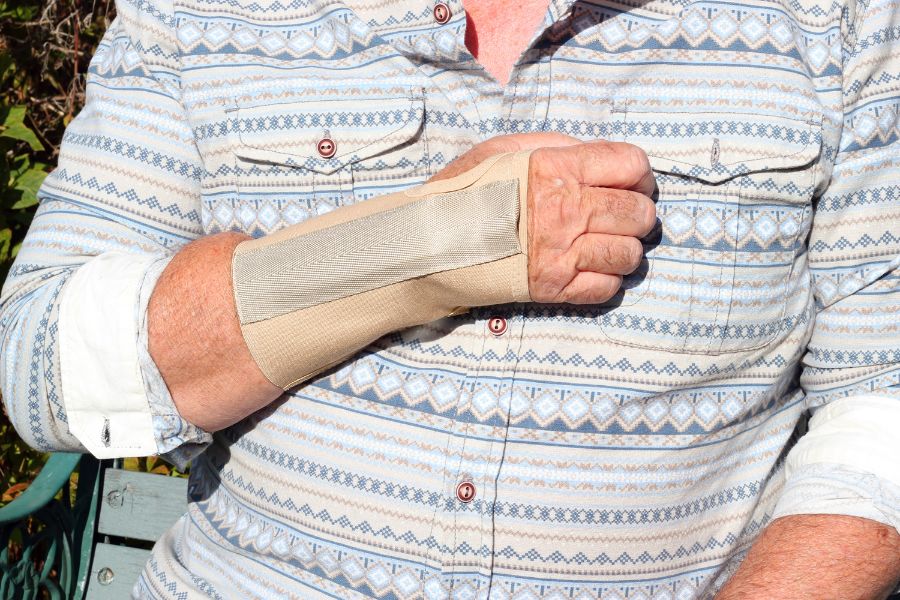
Repetitive strain injury (RSI)

The term "Repetitive Strain Injury" refers to a group of injuries caused or aggravated by forceful, repetitive and awkward movements with insufficient rest or recovery time. The majority of this group of injuries are to the hands, wrist, elbows and shoulders.
Recognised conditions include:
- Tenosynovitis (an inflammation of the tendon sheath).
- Peritendinitis (an inflammation of the soft tissue surrounding a tendon).
- Carpal Tunnel Syndrome (a condition caused by pressure on the median nerve as it passes through the carpal tunnel).
- Median nerve compression of the forearm.
- Lateral epicondylitis (tennis elbow).
- Medial epicondylitis (golfers elbow).
- Rotator cuff syndrome.
- Capsulitis of the shoulder.
The variable nature of the work that can give rise to repetitive strain injuries means that every case is different. Under the common law employers are under a duty to take reasonable care for the health and safety of their employees. Reasonableness is assessed in light of knowledge available at the time. The question for a court therefore is what a reasonably prudent employer ought to have known at the time about a particular risk of injury, and what steps they ought to have taken to address that risk.
What an employer ought to know about the risks in the workplace is all that they would know if they carry out a suitable and sufficient risk assessment. There is a legal duty on employers to carry out a suitable and sufficient risk assessment. In the case of a proper assessment of the risks of developing a repetitive strain injury from prolonged forceful, repetitive or awkward movements, then that is likely to be beyond the capability of anyone other than an ergonomist. An ergonomist studies the effects of the working environment on the human body to identify how processes can be made safer and more efficient. Claims for repetitive strain injury therefore almost always require expert ergonomic evidence about the work processes to identify what the employer ‘ought’ to have known about the risks involved.
The risk of repetitive strain injury can be effectively reduced with a number of simple, low cost, changes to working practices. These include:
- Breaking up prolonged work periods involving repetition.
- Mechanising high risk tasks.
- Design workplaces and equipment with the employee in mind.
- Reducing the weight or size of items, reducing the distance an item needs to be carried, or providing mechanical or other aids to avoid the need to carry items at all.
- Rotating tasks to reduce exposure to risks.
- Controlling working temperatures (usually at least 16°C, or 13°C for strenuous work).
- Providing employees with suitable training and information to avoid awkward movements.
Although the measures that can be taken to reduce the risk of repetitive strain injury are simple, these claims can be evidentially challenging and always require expert ergonomic and medical evidence. Having acted for many men and women with a variety of repetitive strain injuries, Allan McDougall Solicitors are established experts in this field.
If you are interested in making a compensation claim for repetitive strain injury (RSI), please get in touch with us today for a confidential discussion.
Contact us
- Email us
- Call our personal injury claims team free on 0808 560 0872
- Arrange a callback by using our enquiry form
Share this page
Allan McDougall
With you every step of the way.
- Personal injury claims
- Our personal injury team
- How to make a personal injury compensation claim
- How to choose a personal injury solicitor
- Claim now
- Personal injury claim calculator
- How claims are valued
- Frequently asked questions
- Types of personal injury claim
- How to sue someone in the Scottish courts
- Recent successes
- Testimonials
- Injury Compensation Alliance
Personal Injury Claim Calculator
What our clients say
- I was kept updated often by Alison Bosshardt, and it was very straightforward.
J.M. - Excellent service from Stephen Irvine. Keep up the good work!
I.B. - Fiona Fraser, thank you for your professionalism throughout my case. A very streamlined process. I’ll be sure to recommend Allan McDougall Solicitors in the future.
K.C. - My sincere thanks for the service provided by Stephen Irvine and his colleagues. It was first class and much appreciated. I am more than happy with the final outcome.
J.M.

